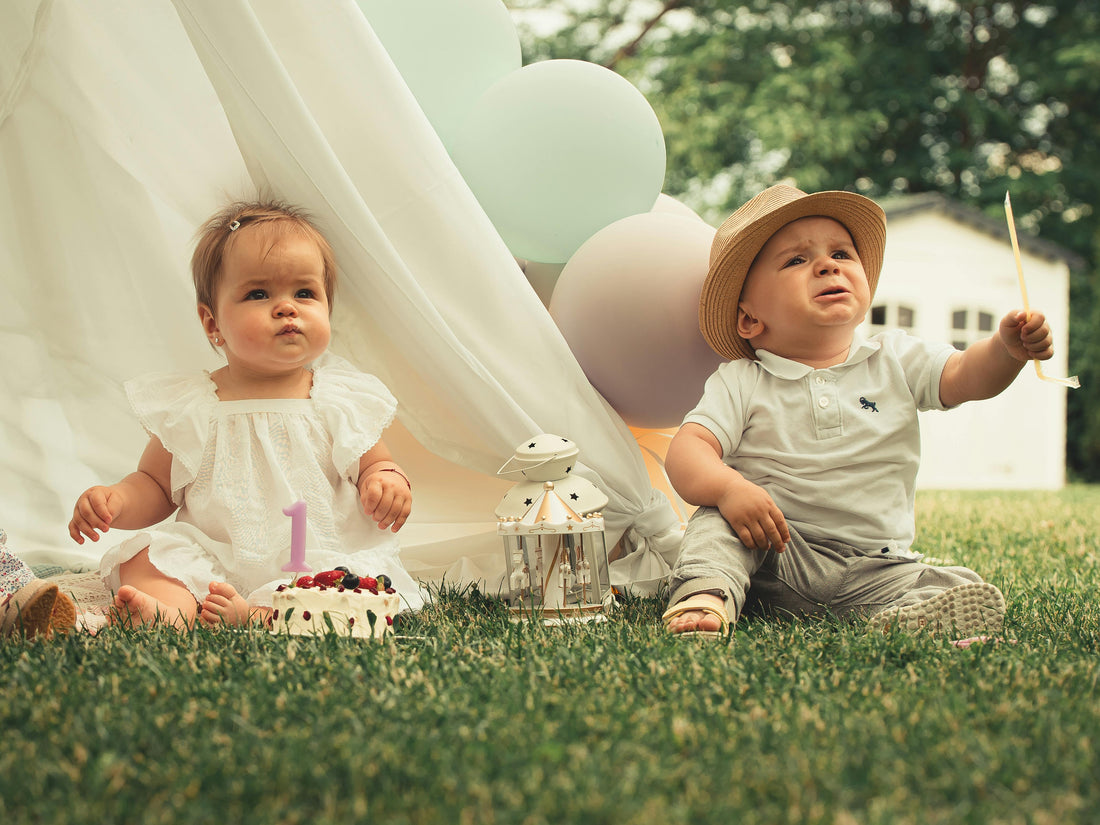
Understanding Separation Anxiety: What You Need to Know
Share
Help to manage your baby's separation anxiety
You’ve finally nailed your baby’s sleep routine (hurrah!), but now those peaceful nights are interrupted by unexpected wake-up cries. Meanwhile, during the daytime your baby is gurgling happily, indifferent to your presence one day but the next, she's crying inconsolably the moment you step out of sight, leaving you feeling guilty and confused.
Welcome to separation anxiety, a challenging but crucial stage that almost every baby goes through. It can start as early as five or six months and continue into toddlerhood. From your baby’s perspective, this phase is about developing independence and learning that she can be safe even when you’re not around. When separation anxiety hits, even a quick trip to the bathroom can leave your baby in tears, making you feel overwhelmed and trapped. But this phase simply highlights the incredible bond you’ve built with your baby, showcasing just how strong and special your connection truly is so before you tackle this developmental milestone, be sure to pat yourself on the back!
When does separation anxiety occur?
Separation anxiety typically strikes between 6 and 12 months of age, but it can also affect toddlers. While your baby might have been fine being left with others before or being alone in her crib, she now worries about when—or if—you'll return. Fortunately, this stage usually resolves by the time your child is between two and three but in the meantime, it can be a challenging milestone to navigate calmly for both you and your little one.
It is very common for night-time to be the hardest for children who have separation anxiety, as the fear of being alone and falling asleep can be particularly strong. For parents, it’s important not to rush to your baby’s side every time she cries at night, as difficult as that might be. You don’t want your baby to think that crying will always bring you back, as this can potentially create an unhealthy attachment. If you suspect something might be wrong, it’s fine to check on your baby. Just do so calmly and without making a fuss. This calm approach helps avoid adding more stress to the situation and reassures your baby that everything is okay.
Signs your baby might have separation anxiety
Are you familiar with any of the following behaviours? They may indicate your baby has separation anxiety:
- Interrupted sleep: Babies with separation anxiety often wake up more frequently during the night and cry out for you, even if they previously slept through the night. This developmental change, occurring roughly between nine to 18 months, means they need more reassurance, especially at night. Your baby might also struggle to fall asleep despite following her usual bedtime routine.
- Early morning wake-ups: Separation anxiety can cause your baby to wake up early and struggle to go back to sleep unless she’s with you. While exhausting, this behaviour signifies a strong attachment to you, indicating that your child is on the path to becoming confident and independent.
- Distress when left with others: Dropping your baby off at the childminder or nursery might become difficult, even if she was previously fine with it. She may also be reluctant to go to others, including her dad. Upset when left alone: Your baby might start crying as soon as you step away, even for a minute.
- Reluctance to play alone: If your baby suddenly loses interest in her favourite toys, it could be a sign of anxiety. She might want you to play with her more often, which, though time-consuming, helps reassure her that you’re not going anywhere.
- Extreme crying: All babies and children cry, but separation anxiety can make them more emotional than usual. Although it’s tough to see your child cry, this phase is temporary.
What can you do to help your baby overcome separation anxiety?
Here are some tips to deal with separation anxiety in small children as easily as possible.
- Establish a consistent routine. Maintaining a regular daily routine to provide a sense of security and predictability for your baby. Implement calming bedtime rituals such as a warm bath, gentle lullabies, or reading a favourite book to ease the transition to sleep.
- Practice short separations. Start with short separations and gradually increase the time you spend apart to help your baby get used to being away from you. Also, when leaving your little one, keep your goodbyes short and positive, avoiding long, emotional farewells. It’s also crucially important to always say goodbye to your baby instead of sneaking away when they’re not looking. This helps build trust and reduces anxiety in the long run.
- Use comfort objects. Introduce a comforting object that your baby can hold onto when you’re not around can provide reassurance and a sense of security. You can also leave an item of clothing or a blanket that smells like you to help your baby feel your presence even when you’re not there.
- Create a safe environment. Always ensure that the environment where you leave your baby is familiar and comfortable, with some of their favourite toys and objects around. Leave your baby with caregivers they know and trust to help ease their anxiety.
- Stay calm and positive. Babies pick up on their parents’ emotions, so try to stay calm and positive during separations to help your baby feel more at ease. Support your baby’s independence with praise and encouragement when they manage short periods of separation without distress.
- Reassure and return. If your baby wakes up crying in the night, go in to offer brief reassurance without making a fuss. Check on them calmly and then leave. Always return when you say you will, which helps build your baby’s trust and confidence that you’ll come back.
- Play peekaboo! Engage in games like this will help your baby understand that people come back after leaving, making separations less scary.
By incorporating these strategies, you can help your baby navigate separation anxiety more smoothly, fostering a sense of security and independence over time. Finally, always remember that separation anxiety is a normal developmental stage and will naturally get easier within a few months. If you need additional support, however, make sure you consult your health visitor.
